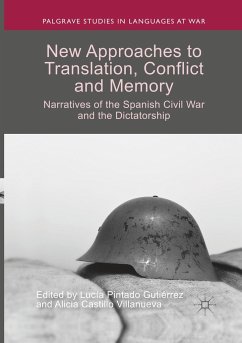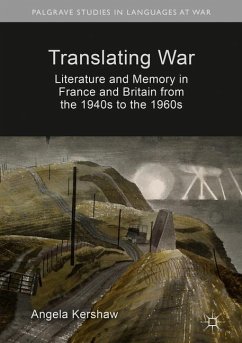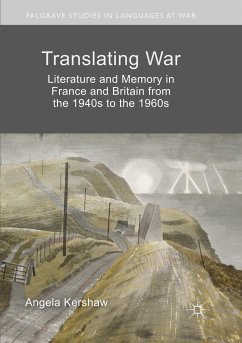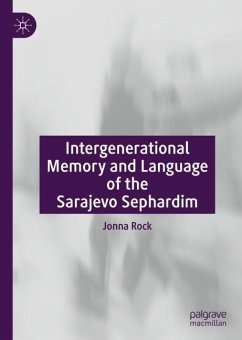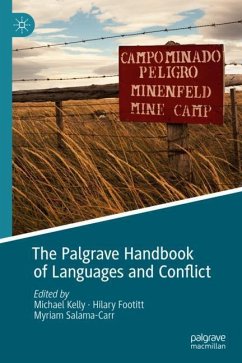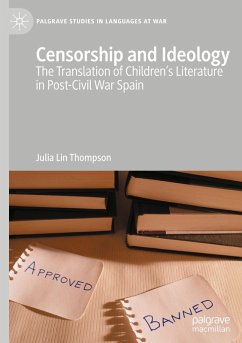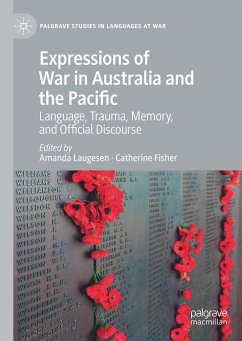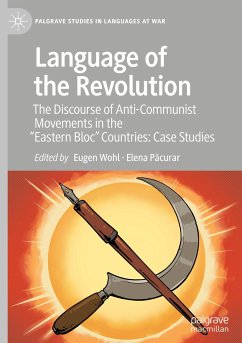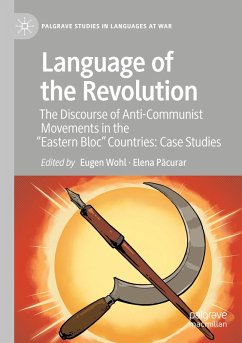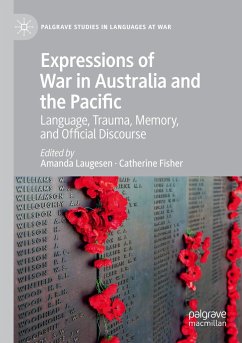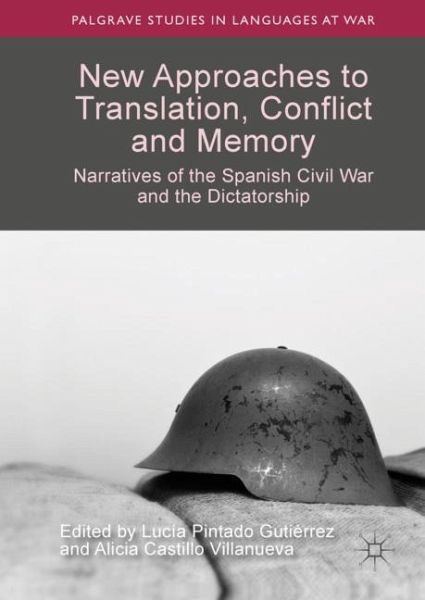
New Approaches to Translation, Conflict and Memory
Narratives of the Spanish Civil War and the Dictatorship
Herausgegeben: Pintado Gutiérrez, Lucía; Castillo Villanueva, Alicia

PAYBACK Punkte
38 °P sammeln!
This interdisciplinary edited collection establishes a new dialogue between translation, conflict and memory studies focusing on fictional texts, reports from war zones and audiovisual representations of the Spanish Civil War and the Franco Dictatorship. It explores the significant role of translation in transmitting a recent past that continues to resonate within current debates on how to memorialize this inconclusive historical episode. The volume combines a detailed analysis of well-known authors such as Langston Hughes and John Dos Passos, with an investigation into the challenges found in...
This interdisciplinary edited collection establishes a new dialogue between translation, conflict and memory studies focusing on fictional texts, reports from war zones and audiovisual representations of the Spanish Civil War and the Franco Dictatorship. It explores the significant role of translation in transmitting a recent past that continues to resonate within current debates on how to memorialize this inconclusive historical episode. The volume combines a detailed analysis of well-known authors such as Langston Hughes and John Dos Passos, with an investigation into the challenges found in translating novels such as The Group by Mary McCarthy (considered a threat to the policies established by the dictatorial regime), and includes more recent works such as El tiempo entre costuras by María Dueñas. Further, it examines the reception of the translations and whether the narratives cross over effectively in various contexts. In doing so it provides an analysis of the landscape ofthe Spanish conflict and dictatorship in translation that allows for an intergenerational and transcultural dialogue. It will appeal to students and scholars of translation, history, literature and cultural studies.





